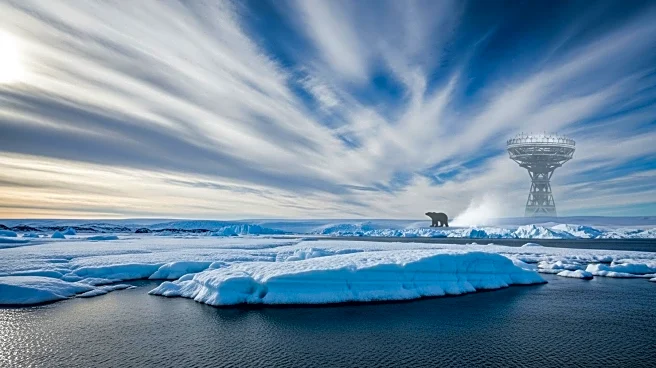What is the story about?
What's Happening?
A group of polar scientists has issued a warning against geoengineering techniques aimed at cooling the Arctic and Antarctic regions. These methods, which include artificially thickening sea ice and releasing reflective particles into the atmosphere, are deemed dangerous and unlikely to work. The scientists argue that these interventions could cause severe environmental damage and distract from the need to reduce fossil fuel use. The assessment, published in Frontiers in Science, reviewed five widely discussed geoengineering ideas and found them lacking in feasibility and posing significant environmental risks.
Why It's Important?
The warning from scientists highlights the potential risks of relying on geoengineering as a solution to climate change. With polar regions experiencing rapid warming, there is pressure to find effective interventions. However, the study suggests that geoengineering could exacerbate environmental problems and lead to geopolitical tensions. This could influence climate policy to focus more on emission reduction strategies and sustainable practices, rather than unproven technological fixes.
What's Next?
The scientists call for a shift in focus towards reducing greenhouse gas emissions and conducting fundamental research in polar regions. They suggest that further exploration of geoengineering techniques may not be a productive use of resources. The findings may prompt governments and research institutions to reconsider funding allocations for geoengineering projects and prioritize emission reduction initiatives.
Beyond the Headlines
The ethical and governance challenges associated with geoengineering are profound. Deploying such techniques in international waters raises questions about jurisdiction and accountability. The potential for unintended consequences, such as altering global weather patterns, adds complexity to the debate. Furthermore, the study highlights the risk of creating false hopes that geoengineering could be a quick fix for climate change, potentially delaying necessary actions to reduce emissions.
















